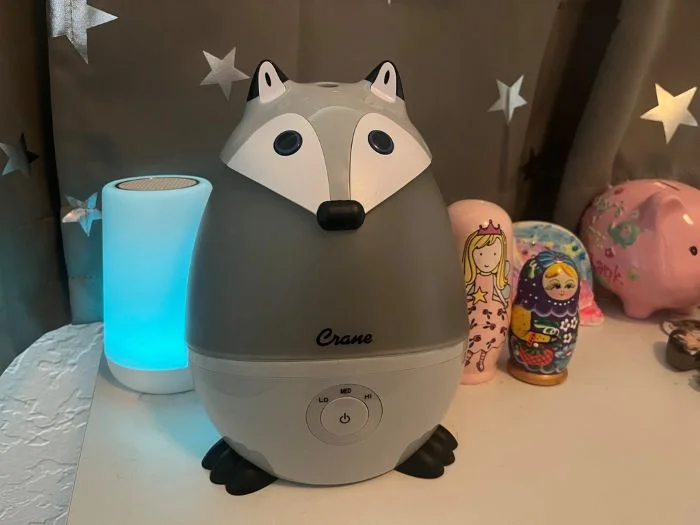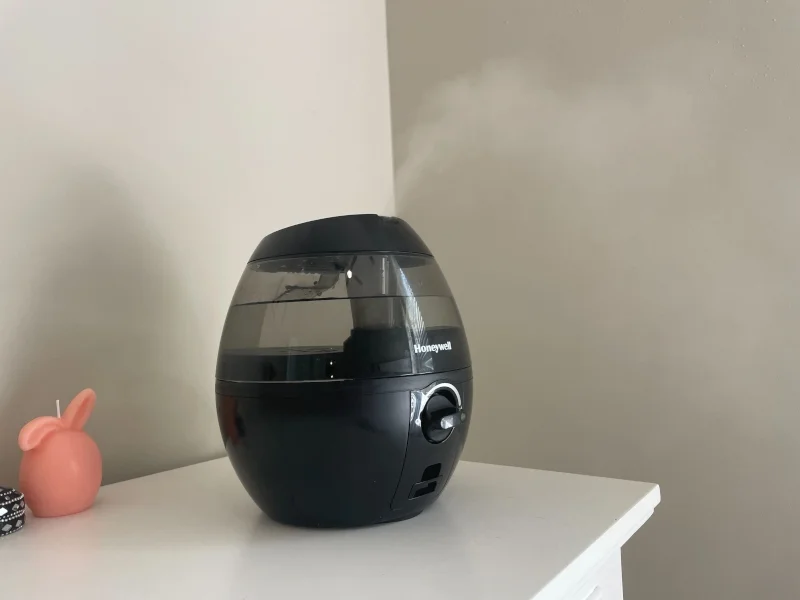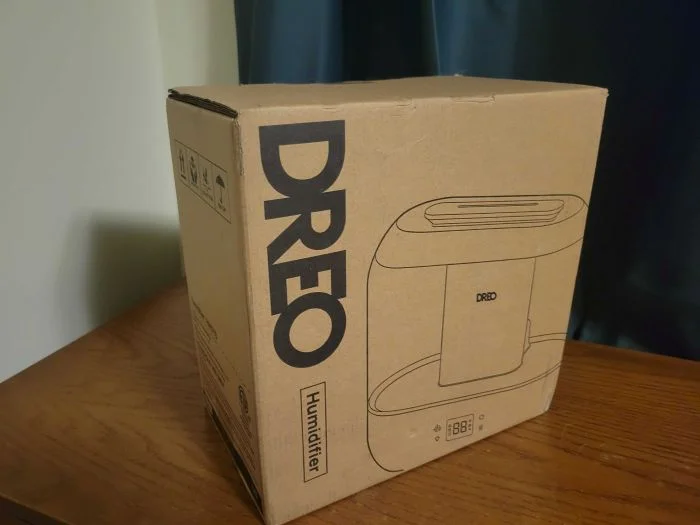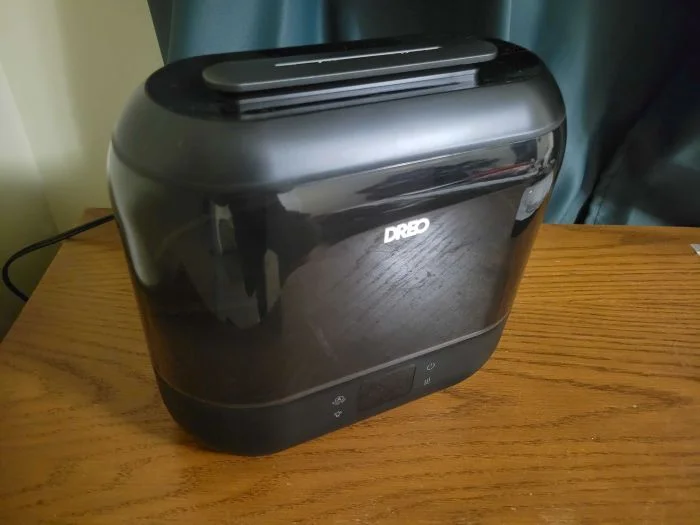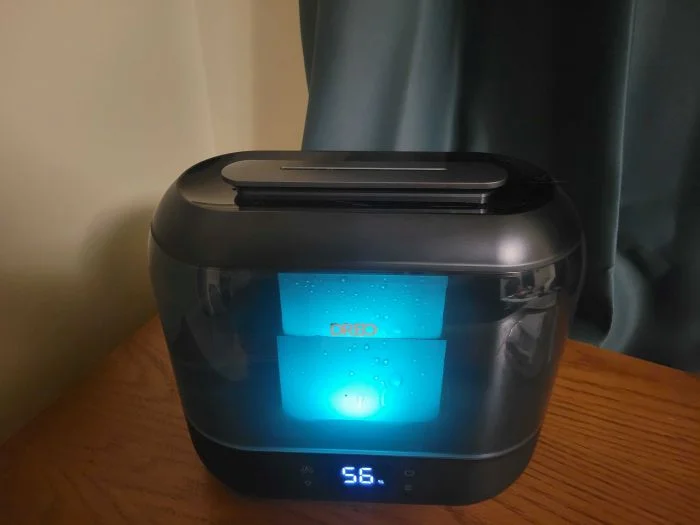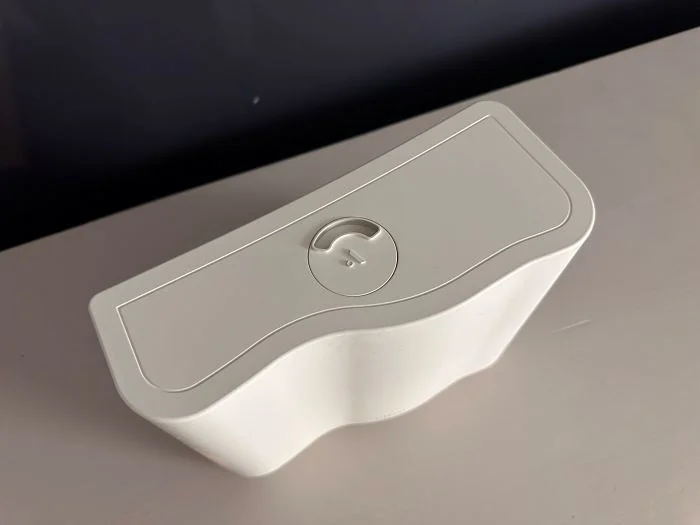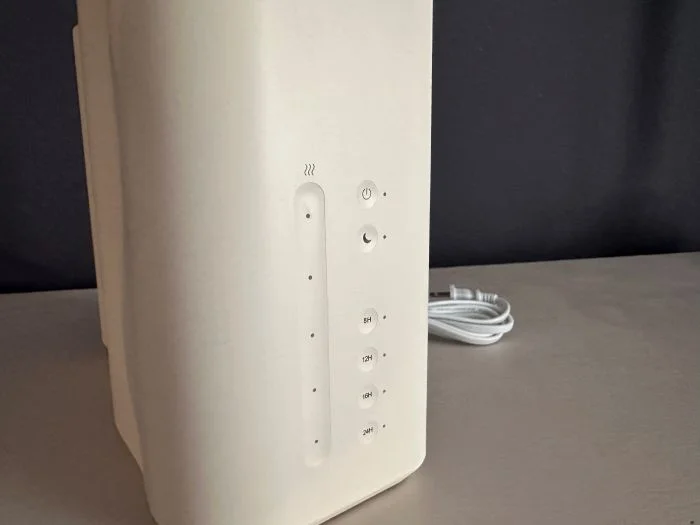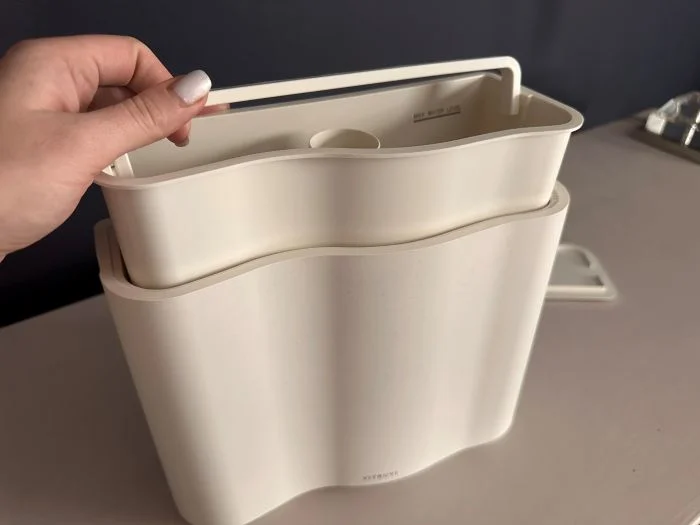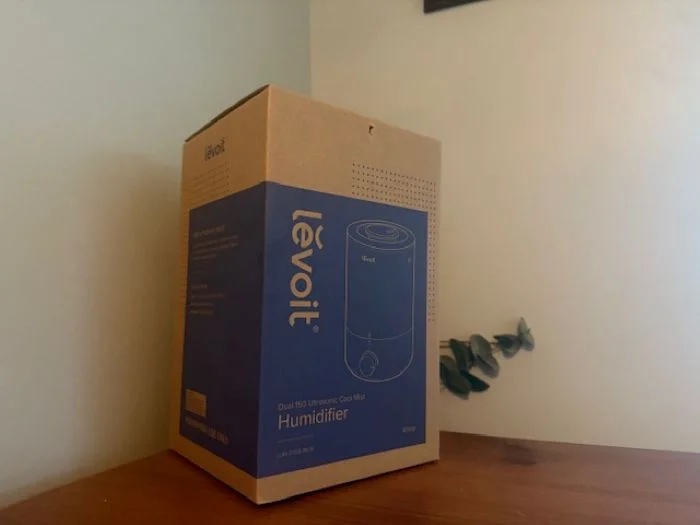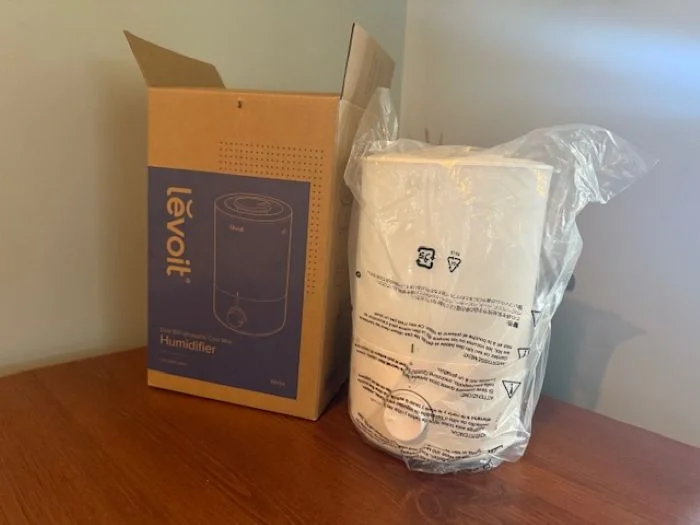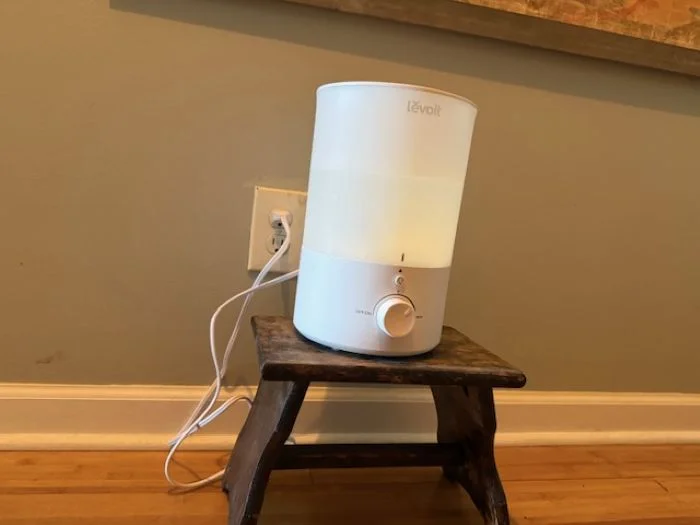If your little one is struggling with congestion or a bout of the sniffles, using a humidifier in the nursery is one way to help. “Keeping the air moist can possibly help babies with conditions like congestion, runny nose, or a sore throat, depending on the underlying cause,” says our chief medical advisor, Dr. Raj Dasgupta.
Of course, since we’re talking about your precious bundle of joy, any old humidifier won’t do. They must be not only effective but also safe and non-disruptive to ensure your infant gets the best quality sleep. That’s why our testers have evaluated and ultimately selected these hand-picked options as the best humidifiers for babies.
We’ve been testing mattresses and sleep accessories for years — hundreds upon hundreds of products at this point — and our efforts have helped almost 132,000 shoppers find the right fit. If you’re ready to join the ranks of happy customers, read on to find out more.
Best Humidifiers for A Baby’s Room
- Crane 0.5 Gallon Ultrasonic Humidifier – Best Overall
- Honeywell Mistamate Cool Mist Humidifier – Best Cool Mist Humidifier for Babies
- Dreo Smart Humidifier – Best Humidifier for a Large Nursery
- Vitruvi Cloud Humidifier – Best Luxury Humidifier for Babies
- Levoit Dual 150 Ultrasonic Cool Mist Humidifier – Best Budget Humidifier for Babies
Disclaimer: Please note that the content in this article is meant for informational purposes only and should not be construed as medical advice or serve as a substitute for seeing a medical professional regarding any sleep problems you may have. Please see your doctor or pediatrician regarding any urgent medical issues.
What I Looked For in Humidifiers for Babies
Our testers took these humidifiers home for a few weeks to get a feel for how they worked. Some testers are parents themselves and offered unique insight on how they’d work for children’s rooms, as well as what they’d like to see in a humidifier for an infant. When choosing our favorites, though, I prioritized features that would both benefit young sleepers and offer a safer, more comfortable sleeping environment overall.
- Cool mist: Cool mist humidifiers are recommended for children because they humidify the room without hot steam, which can cause pain or even burns if you come into contact with the emissions. Therefore, we prioritized cool mist humidifiers so they’ll pose less risk to babies. They’re also safer if you have pets or other young children roaming about the house.
- Interface: How these humidifiers operate is also important, not just for safety but for your ease of use. Some of these products are simple plug-and-play types, while others have more specialized presets and customization. We also considered any other safety features that might appeal to parents. This could be anything from a child lock to an automatic shut-off. We’ll make note of any features we think could be challenging or helpful to new parents, rating our overall experience with the humidifier’s mechanisms out of 5.
- Noise: Since sleep is temperamental for young ones, your humidifier must be quiet enough not to wake your baby. Our testers noted whether they found the noise that the humidifier made loud or soft, as well as whether it would pass for a white noise machine. Some testers used a decibel-measuring app on their phone to get a specific reading of the humidifier’s noise on each setting. All of these humidifiers scored 4s and above in this category, meaning they should be relatively quiet.
Crane 0.5 Gallon Ultrasonic Humidifier – Best Humidifier for Babies Overall
Crane .5 Gallon Ultrasonic Humidifier
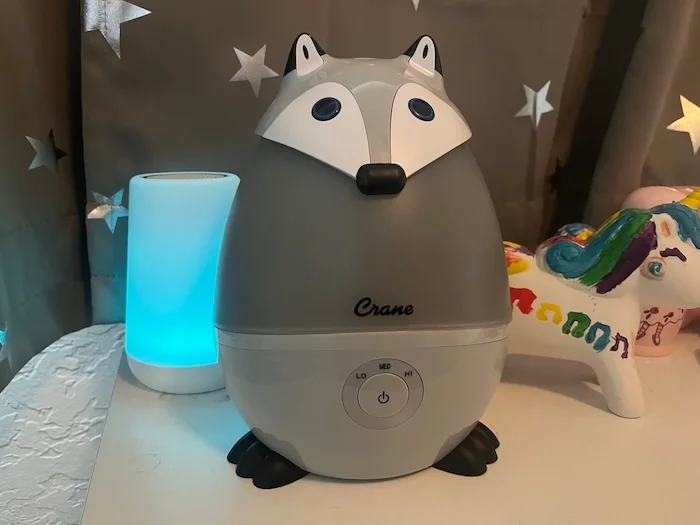
This portable humidifier is made for kids and comes in several fun animal designs, including an owl, raccoon, and unicorn.
Honeywell Mistamate Cool Mist Humidifier – Best Cool Mist Humidifier for Babies
Honeywell HUL520B Mistmate Cool Mist Humidifier
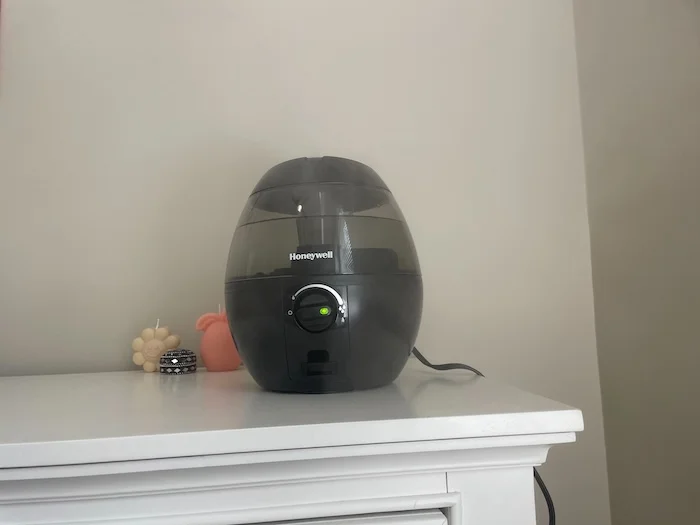
This sleek humidifier from Honeywell has an easy-to-use interface and is even easier to clean.
Sleepopolis Score
4.60 / 5
Dreo Smart Humidifier – Best Humidifier for a Large Nursery
Dreo HM311S Smart Humidifier
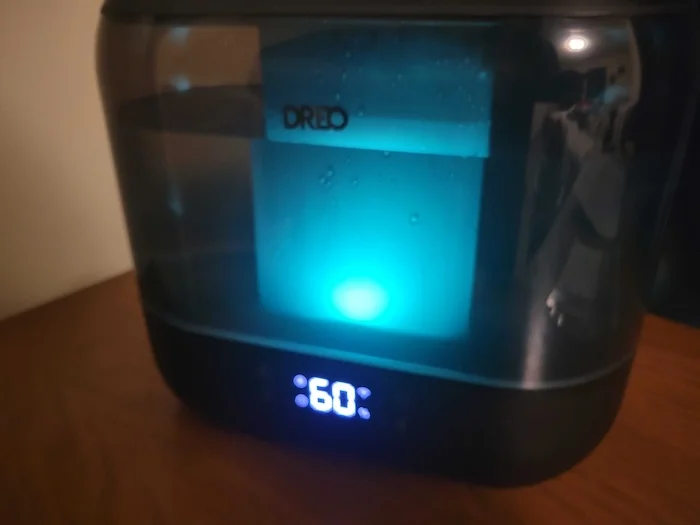
This easy-to-use smart humidifier can be controlled manually or with an app. It boasts a wide range of decibels and a range of up to 300 feet.
Sleepopolis Score
4.20 / 5
Vitruvi Cloud Humidifier – Best Luxury Humidifier for Babies
Vitruvi Cloud Humidifier
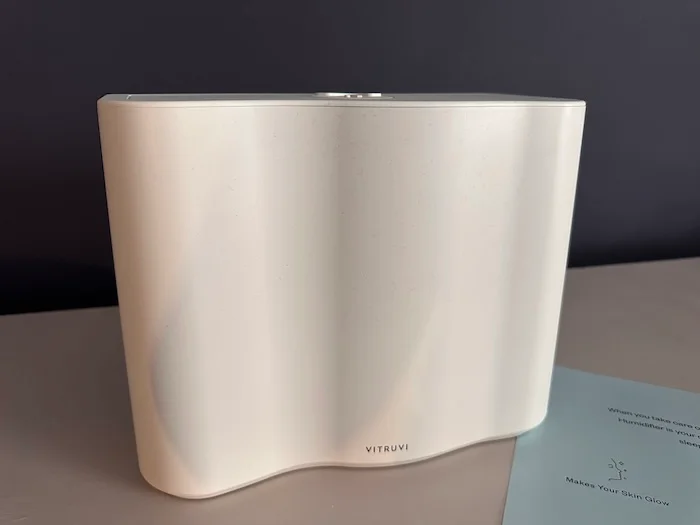
Dishwasher-friendly humidifier that can cover spaces as large as 600 square feet.
Sleepopolis Score
4.00 / 5
Levoit Dual 150 Ultrasonic Cool Mist Humidifier – Best Budget Humidifier for Babies
Levoit Dual 150 Ultrasonic Cool Mist Humidifier
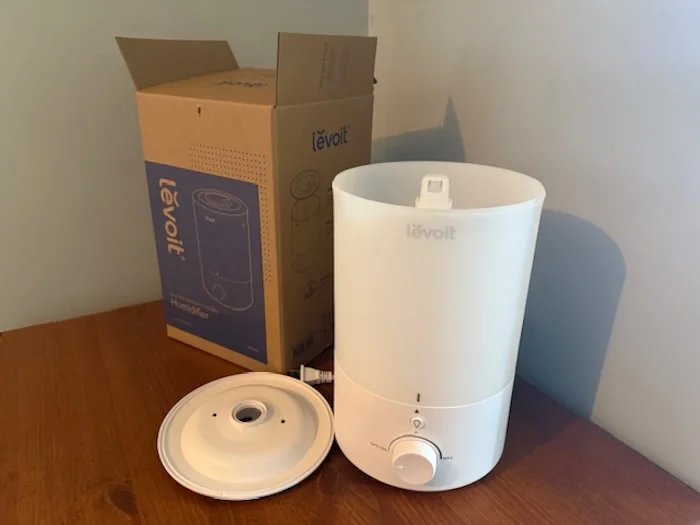
The Levoit Dual 150 Ultrasonic Cool Mist humidifier has a 3-liter capacity and doubles as a diffuser.
Sleepopolis Score
4.60 / 5
Other Humidifiers Considered
If you didn’t find what you were looking for in the list above, here are some other options we’ve reviewed.
Crane 1 Gal. Drop Cool-Mist Humidifier
This is a larger humidifier by the same brand as our top pick, Crane. While not shaped like an animal, its teardrop shape and bright color can definitely spruce up any kid’s bedroom. It’s controlled via a simple knob, and a light tells you when it needs refilling. However, the filters required for this humidifier are sold separately, which can incur an extra cost.
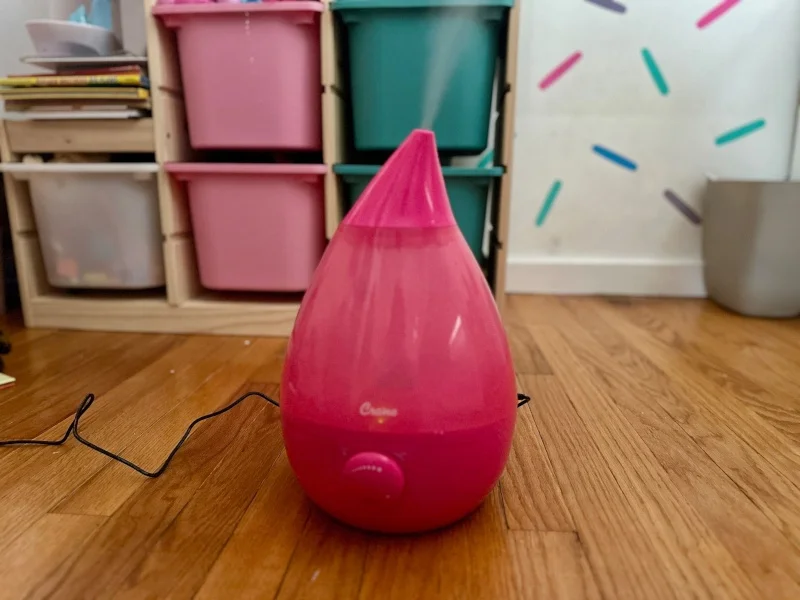
Vornado Lucerna 3 Alchemy Ultrasonic Humidifier
This humidifier adds a touch of whimsy to a large bedroom, providing a warm glow and coverage for large areas. It has two modes, low and high, both of which run relatively quietly with only a soft hum. Unfortunately, this isn’t a cool-mist humidifier, so I wouldn’t recommend it if you have other young children or pets around the house.
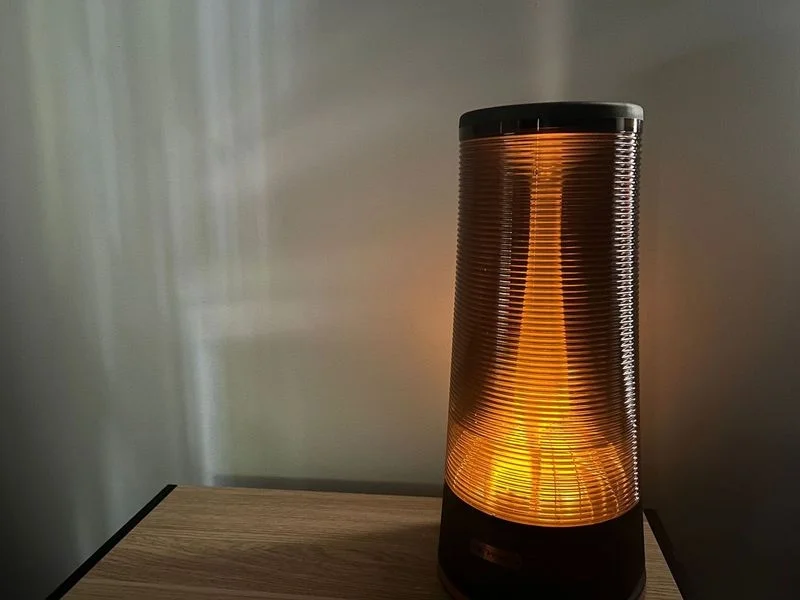
How We Picked and Tested These Humidifiers
We wanted to ensure that these humidification devices met the highest standards for quality, comfort, and safety for your little ones, so we focused on testing areas that prioritized these characteristics.
Cool Mist
As mentioned throughout this article, cool mist humidifiers are generally recommended for children over warm mist humidifiers because of the risk for burns. While the word “humidity” seems like it might require heat, it’s more to do with the water content in the air. Cool mist humidifiers increase the water content in the air without heating it up, which could also be more ideal for warmer climates. They’re just as effective as other humidifiers.
As a general rule, the ideal humidity for an indoor room should be around 30-percent to 50-percent humidity, otherwise, you risk mold growth in a too-damp environment. But a slightly humid environment can be beneficial for conditions like congestion or dry skin. Always be sure to monitor your room for signs of excessive humidity, such as a musty smell or damp walls.
Features
Humidifiers can range from simple to incredibly specialized. What works best for you and your baby will depend on your needs and preferences. Some humidifiers can act as a night light, while others may have built-in air purifiers. For babies, auto-shutoff functionality and child-proof locks may be more attractive. If the humidifier can be charged and powered without a cord, it might be better for parents worried about tripping hazards.
Our testers rated the interface of each humidifier out of 5, noting whether they found it intuitive or it required a bit of finagling. They also honed in on features of note for all sleepers, not just young ones, such as whether or not the humidifier required extra parts (i.e. filters, batteries, etc).
Noise
Quiet operation is a must for a humidifier that you use for your baby. Sleep for newborns is crucial and temperamental, and the last thing you want is for a groaning humidifier to wake your baby. That’s why we rated the noise level of each of these sound machines out of 5, as well as describing the nature of the noise —whether it was humming, bubbling, or any other noise that might rouse a light sleeper.
Studies have recommended that to ensure little disturbance in a baby’s sleep, ambient sound in hospital NICUs must not go above 50 decibels (dB). Of the humidifiers that were precisely tested for sound output, all were below 35 decibels on their highest setting. Your infant may have their own opinions about whether this is too loud, but our testers believed that each humidifier was rather quiet, and likened the noise to a soothing white noise machine.
What to Consider in the Best Humidifiers
Aside from the areas outlined above, here are some other factors that may influence your final decision.
Cleaning
Regularly cleaning your humidifier is important to protect your home from mold and bacteria buildup inside the unit, which can then be released into the air with each use. But some humidifiers are easier to clean than others, which can make ensuring a clean and safe environment for your baby an undue hassle.
Our testers looked at whether these humidifiers could be taken apart to be cleaned or whether it required a bit more elbow grease to reach the water tank. Some components are even machine-washable, as in the case of the Vitruvi Cloud Humidifier. We rated the cleaning process on a scale of 1 to 5 for how seamless we found it, so you can use this score as a preview of how easy it should be.
Add-Ins
Some humidifiers have special compartments or built-in diffusers to add in medicinal vapors or essential oils for aromatherapy. While I wouldn’t recommend using anything but your standard distilled water or other filtered water for infants, if you’re planning on using the humidifier for yourself or after your child is grown, this feature might be something to consider. Just note that these add-ins are usually sold separately, which may drive up the price.
Area Coverage
You’ll also want to consider the size of the room your humidifier is going to be in. If your baby’s room is rather compact, you may be able to get away with a smaller machine. However, large rooms are going to require large tanks. These are often more expensive and more bulky, but worth it for better coverage. It may be a good investment if you plan on using the humidifier in your own room.
Just be sure if you opt for a bigger humidifier for a smaller room that you closely monitor the humidity level. The last thing you want is your room to get too damp, which can increase the likelihood of mold growth.
Price
Humidifiers come in a wide range of prices, with options on this list ranging from just below $40 to nearly $200. What works for you will depend on your budget, but you can find plenty of high-quality options at a reasonable price. Generally, bigger humidifiers with more specialized technology and functions will cost more than your simple plug-and-play models.
Always be certain to read customer reviews both on and off the manufacturer’s site (just like ours) to get a feel for how well the product holds up. Some humidifiers are available on Amazon, which makes for easier returns under company policies. Others may come with warranties that should cover defects.
FAQs
Which type of humidifier is best for babies?
Cool mist humidifiers are the best options for babies and children because they won’t expose them to hot steam, which can lead to burns if they come into contact with it. Look for a good humidifier that’s also quiet and has other safety features, like auto shut-off or cordless power.
Do pediatricians recommend humidifiers?
Pediatricians may recommend a humidifier if your baby is dealing with nasal congestion or skin conditions, for example, as dry air can worsen these conditions. However, always consult your healthcare provider before using a humidifier in an infant’s room.
Is it okay to have a humidifier on all night for a baby?
Yes, it is usually safe to have a humidifier on all night. Ensure it is properly plugged in, full, and a safe distance away from the crib or bassinet. If you’re especially worried, invest in a humidifier that has an automatic shutoff when the tank is empty.
Sources
- Baughn, J. (2023, May 11). Warm-mist versus cool-mist humidifier: Which is better for a cold? Mayo Clinic. https://www.mayoclinic.org/diseases-conditions/common-cold/expert-answers/cool-mist-humidifiers/faq-20058199
- Philadelphia, T. C. H. of. (2022, March 4). Aromatherapy for Children: What’s Safe and What’s Not. Children’s Hospital of Philadelphia. https://www.chop.edu/news/health-tip/aromatherapy-children-whats-safe-and-whats-not
- US EPA. (2014, August 28). Care for Your Air: A Guide to Indoor Air Quality. US EPA. https://www.epa.gov/indoor-air-quality-iaq/care-your-air-guide-indoor-air-quality
- Royer, A. K., Wilson, P. F., Royer, M. C., & Miyamoto, R. T. (2015). Brief Report. Otolaryngology, 152(6), 1039–1041. https://doi.org/10.1177/0194599815580977
- Mohan, A. K., Feigley, C. E., & Macera, C. A. (1998). Humidifier Use in the Home Environment and Its Effects on Respiratory Health. Applied Occupational and Environmental Hygiene, 13(11), 782–787. https://doi.org/10.1080/1047322x.1998.10389150































